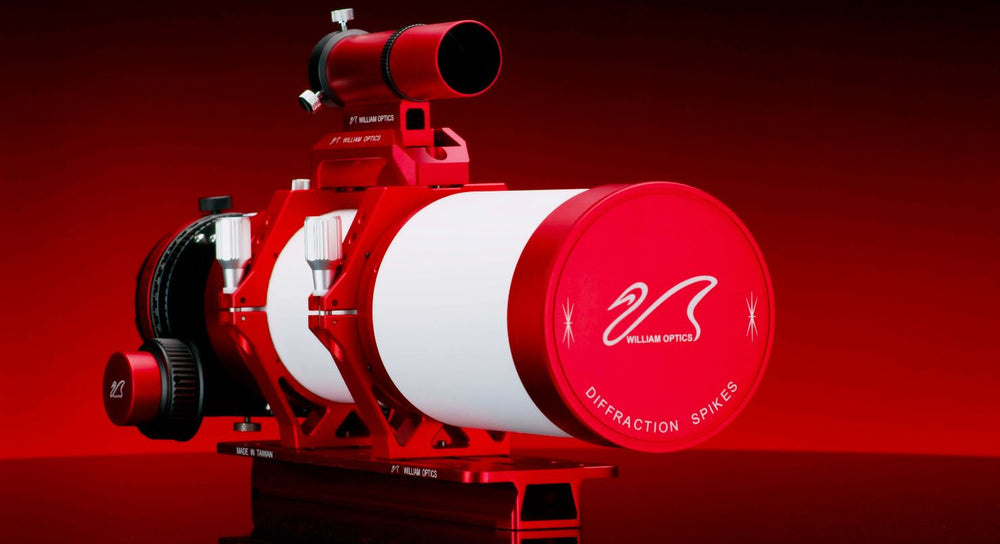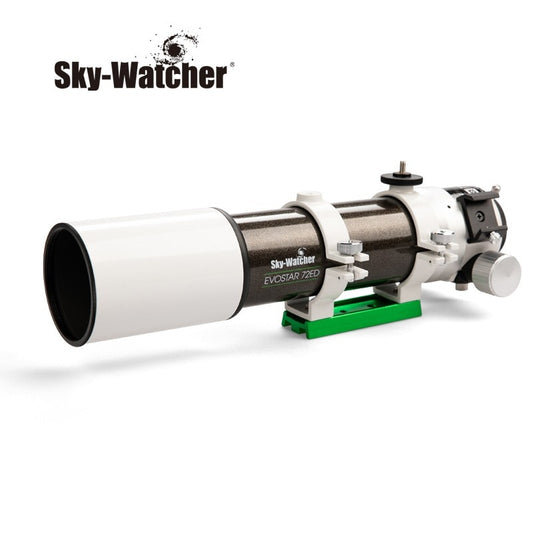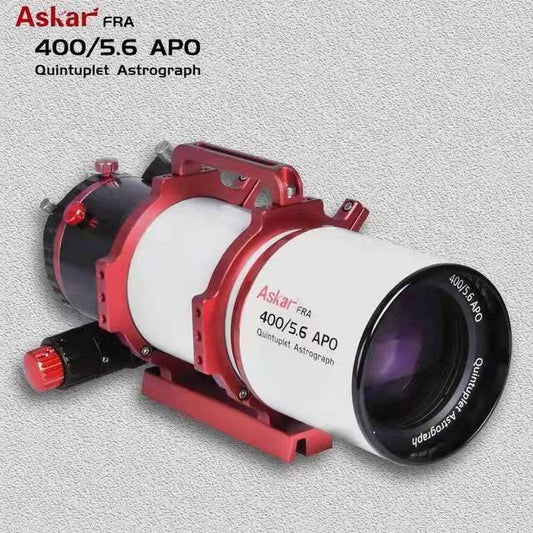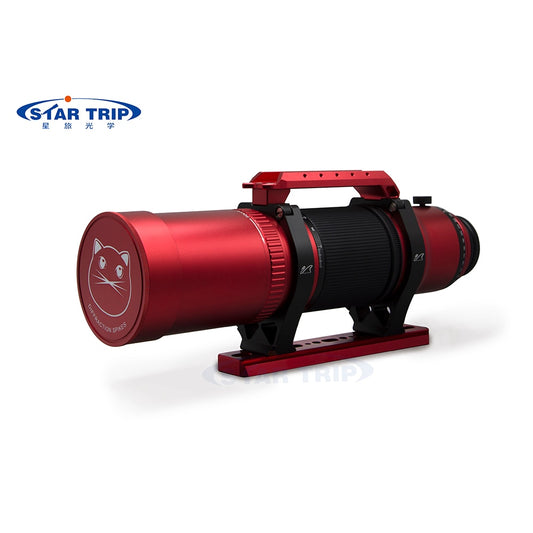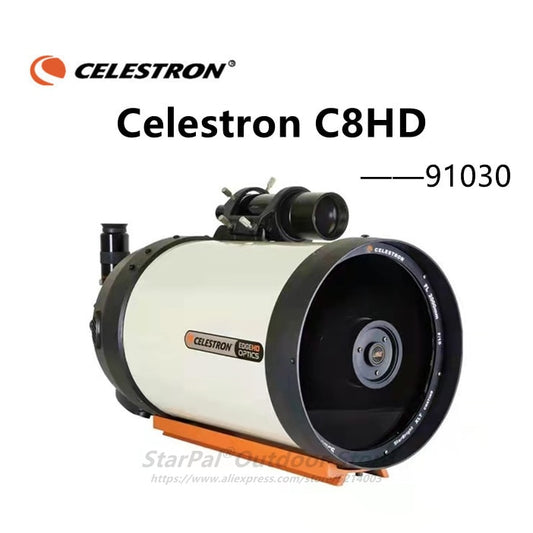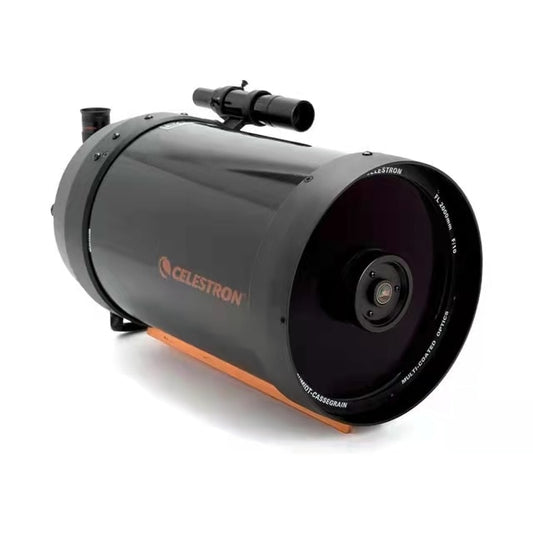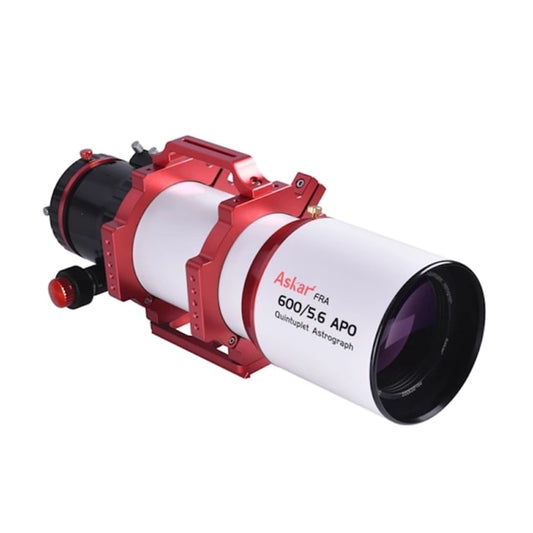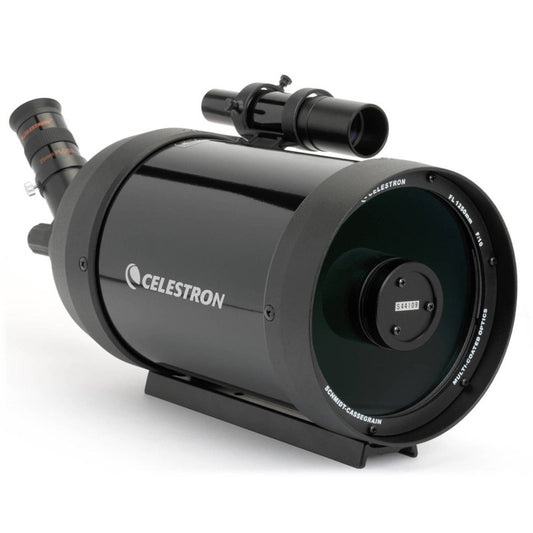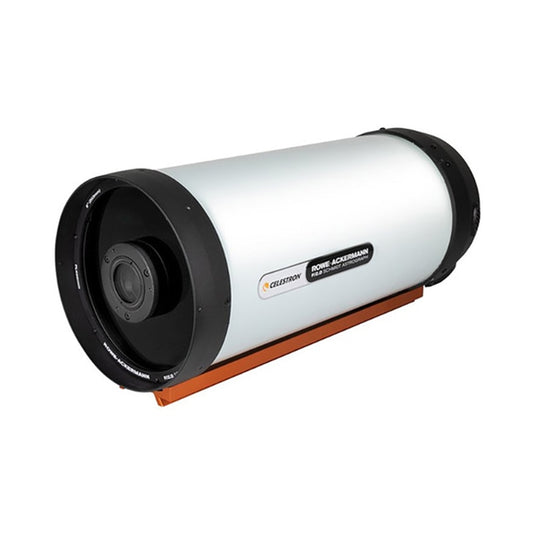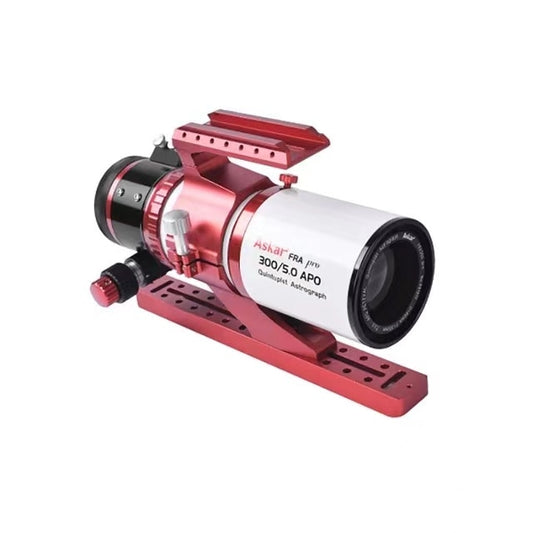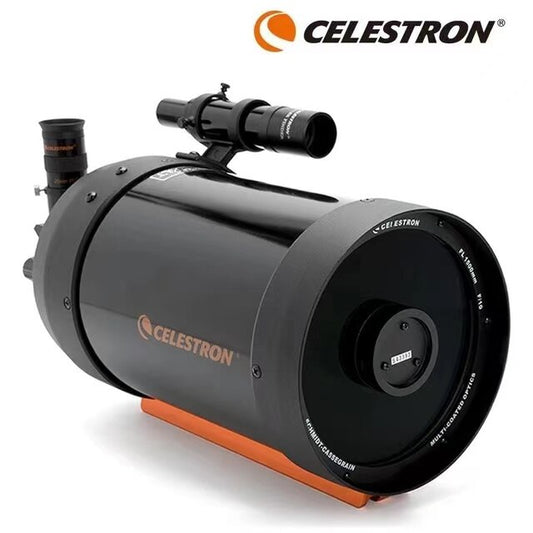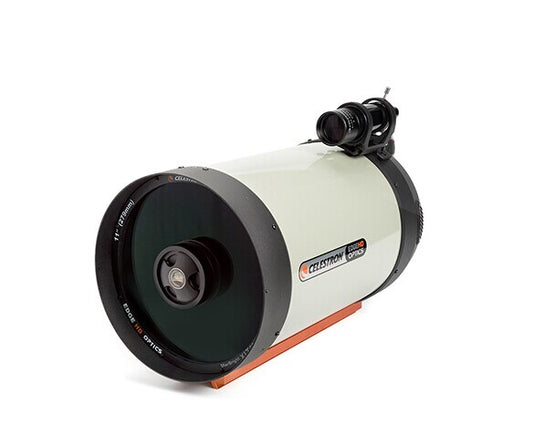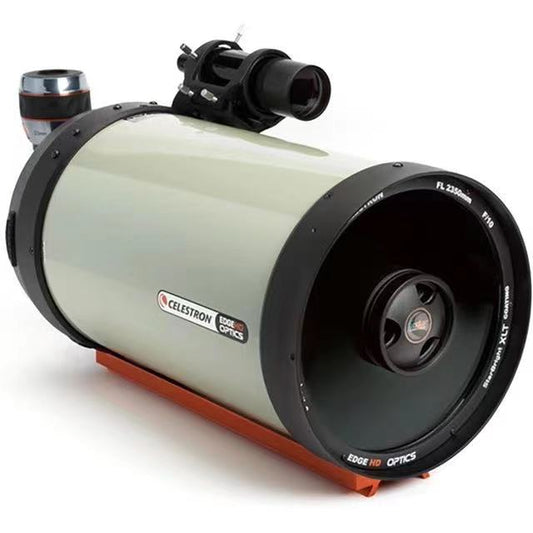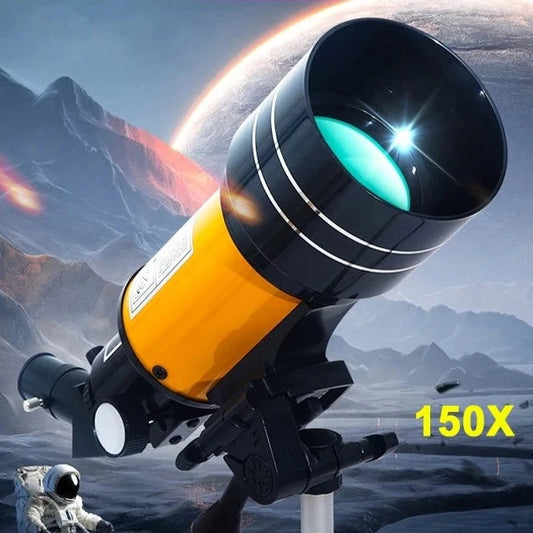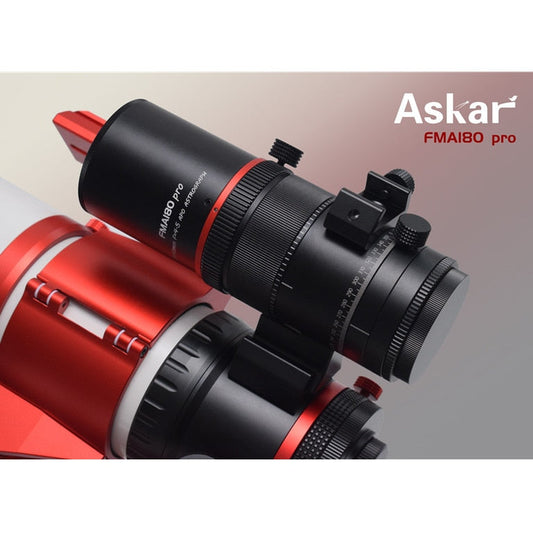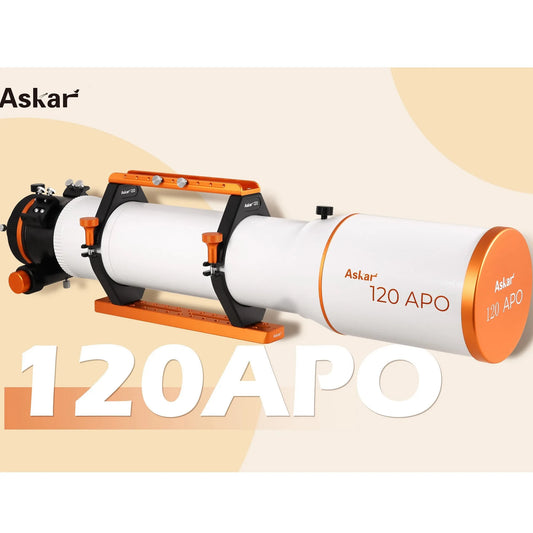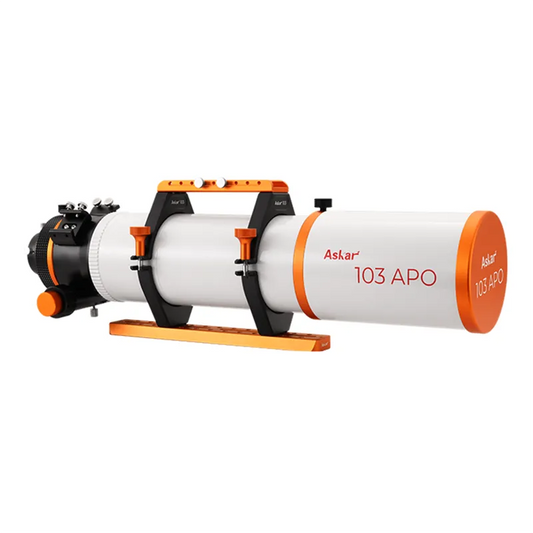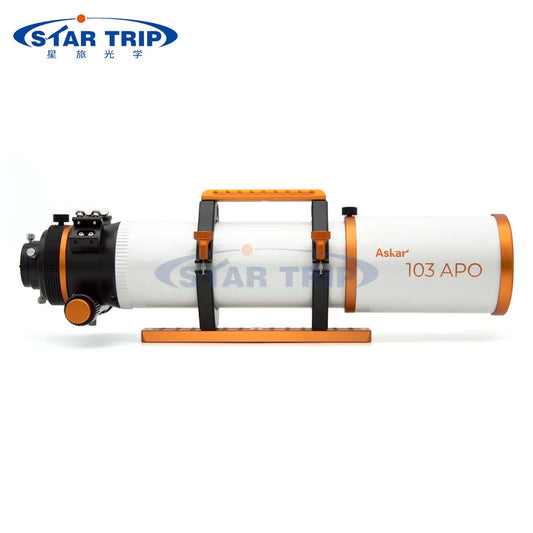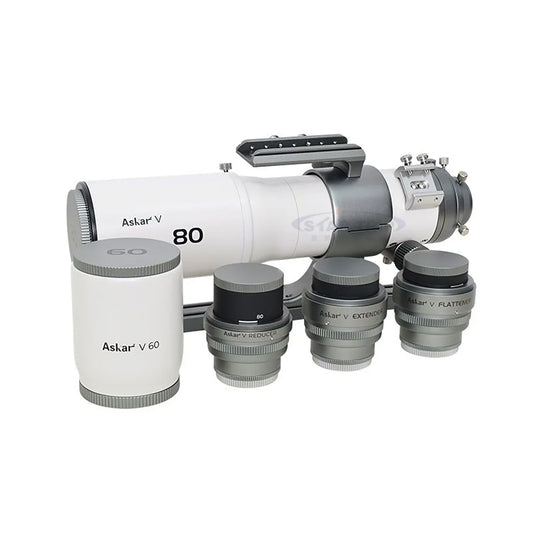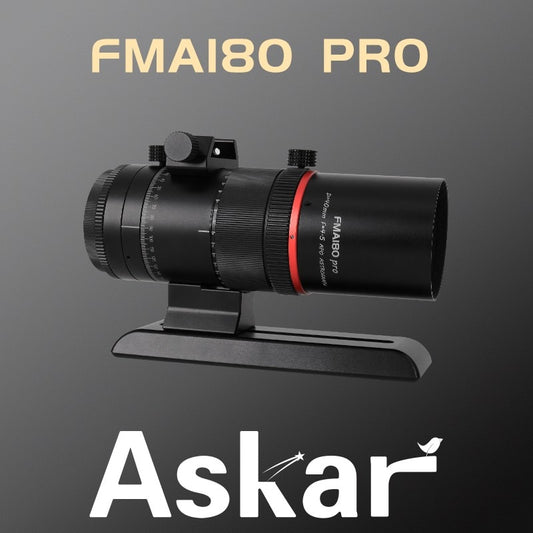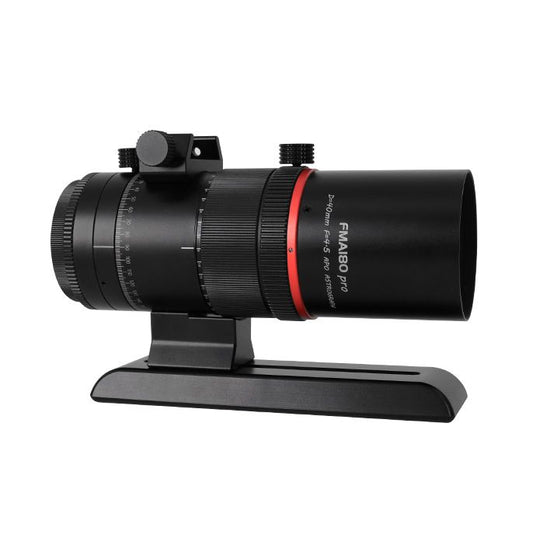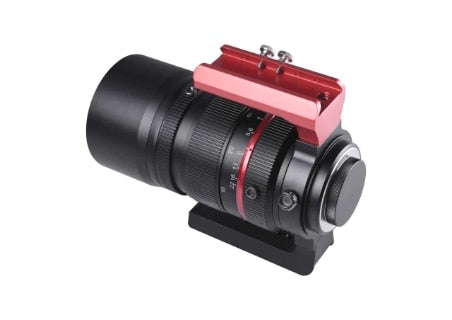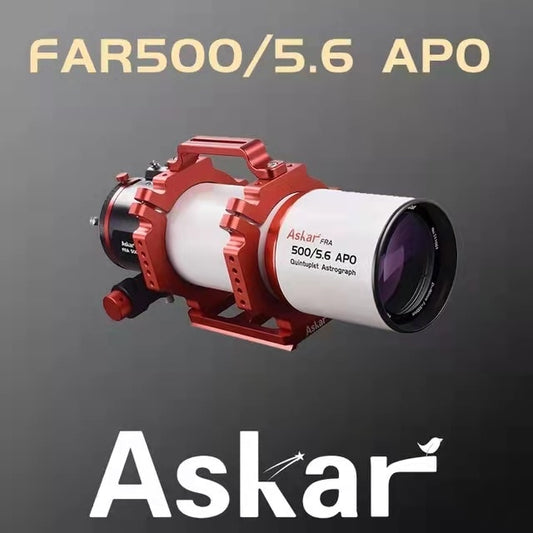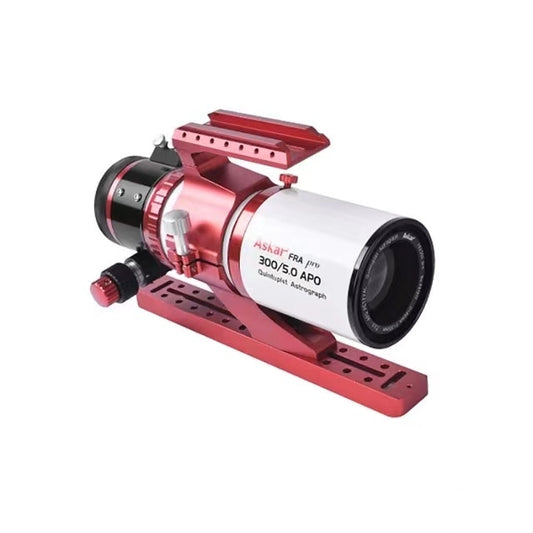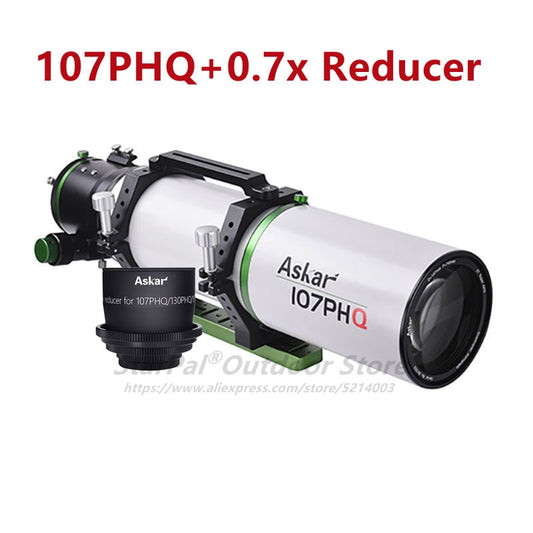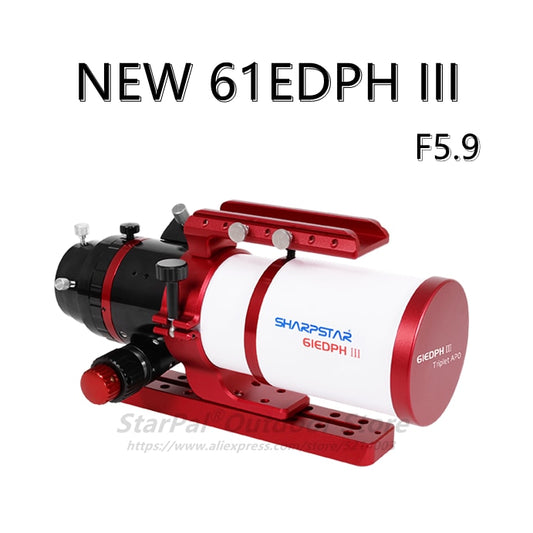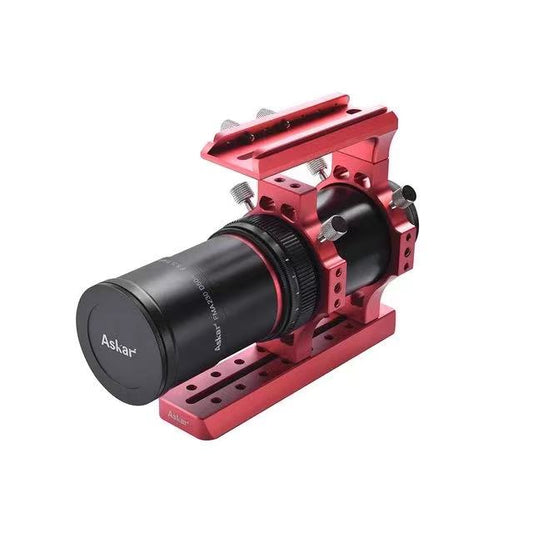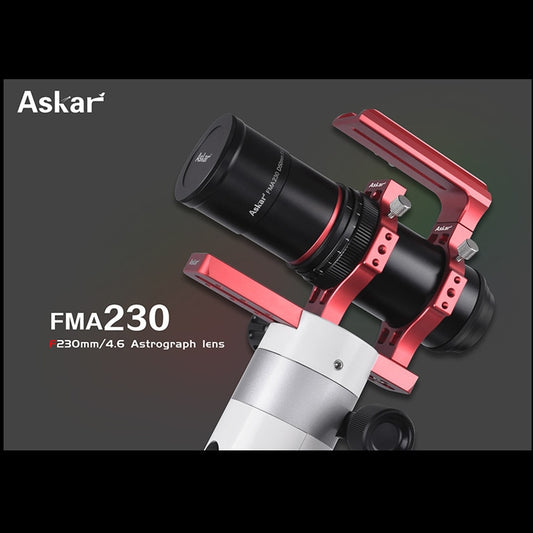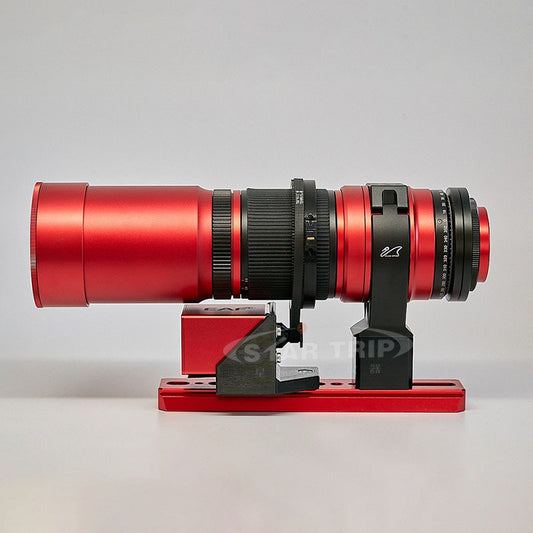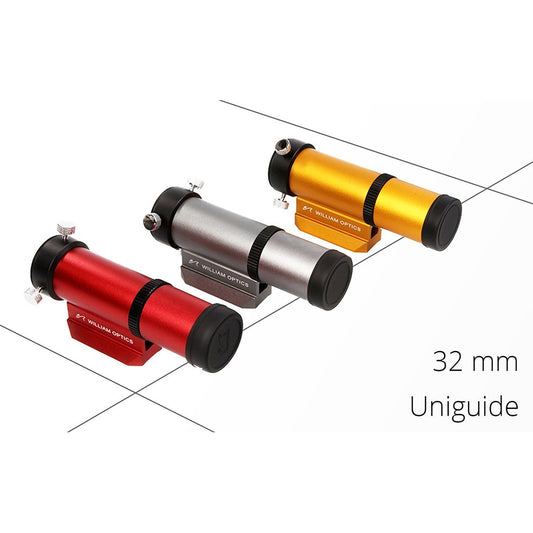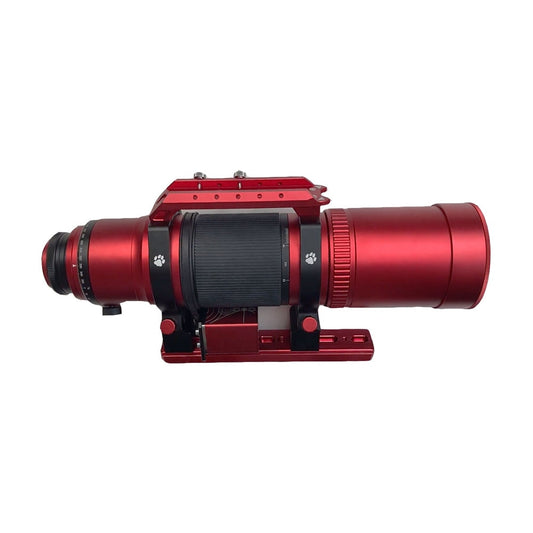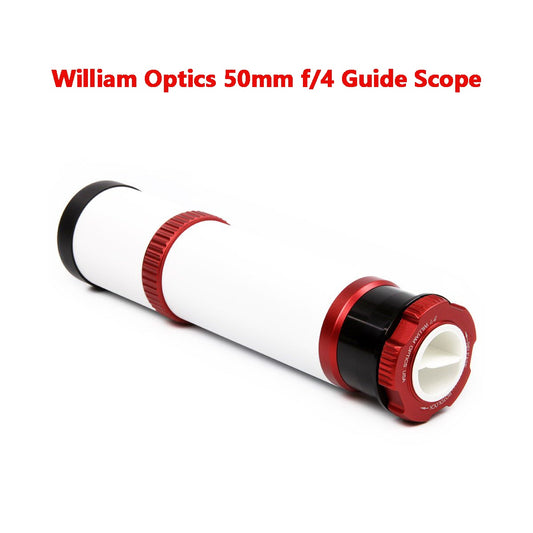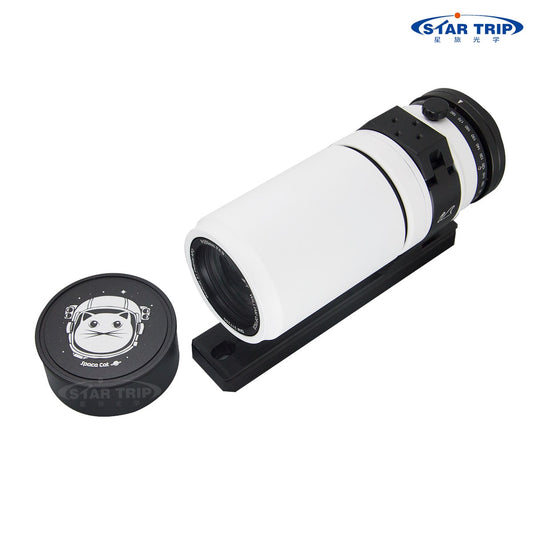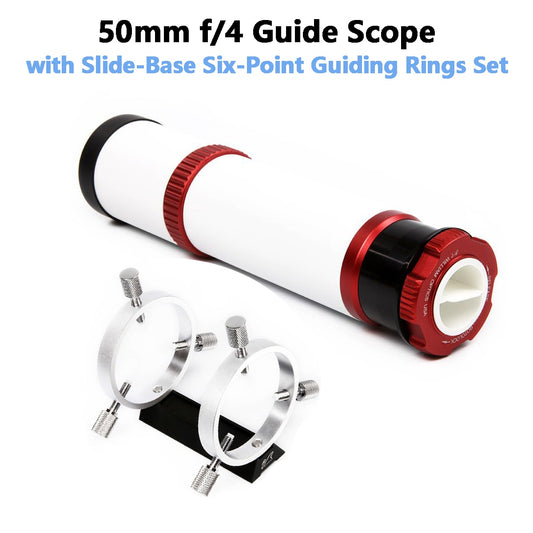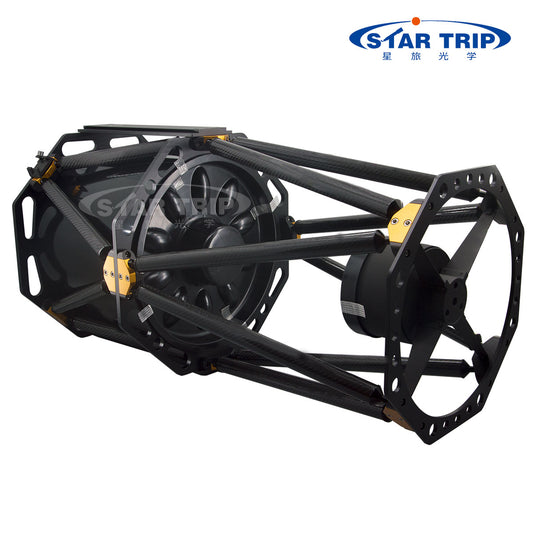Refractor vs Reflector Telescope - Which is better?
Choosing a telescope can be an exciting yet daunting task for both beginners and experienced astronomers. The two most common types of telescopes are refractor and reflector telescopes. In this blog post, we will discuss the differences between these two types of telescopes, their advantages and disadvantages, and help you decide which one is best suited for your needs.

Refractor Telescope
A refractor telescope uses a lens to bend and focus incoming light, producing an image. The lens is located at the front of the telescope, and the eyepiece is located at the back. Refractor telescopes are typically more expensive than reflector telescopes due to the cost of the lenses.

Pros
- Provide sharp, high-contrast images
- Easy to use and require little maintenance
- Ideal for observing the moon, planets, and stars
- Often preferred for terrestrial viewing as well
One of the advantages of a refractor telescope is that it is low maintenance, as it does not require frequent adjustments or cleaning. Additionally, refractor telescopes provide high-quality images with sharp and clear details. They also have a long lifespan and are less prone to misalignment.
Cons
- Generally more expensive than reflector telescopes
- Smaller apertures than reflectors, resulting in less light gathering power
- Limited options for magnification due to their design
- Can suffer from chromatic aberration, a type of distortion in which colors appear fringed around objects

Refractor telescopes have a smaller aperture than reflector telescopes, which limits their ability to gather light. They are also heavier and more cumbersome to transport, which can be an issue for those who plan to travel with their telescope. The cost of a high-quality refractor telescope can also be a barrier for some beginners.
Reflector Telescope
A reflector telescope uses a mirror to reflect and focus incoming light, producing an image. The mirror is located at the back of the telescope, and the eyepiece is located at the side. Reflector telescopes are typically less expensive than refractor telescopes due to the cost of the mirrors.

Pros
- Large apertures, resulting in more light gathering power
- Affordability, with many options available at lower price points
- Large range of magnification options
- Ideal for observing faint objects such as galaxies and nebulas
One of the advantages of a reflector telescope is that it has a larger aperture, which allows it to gather more light and produce brighter images. They are also less expensive than refractor telescopes, making them a more accessible option for beginners. Additionally, reflector telescopes are easier to transport due to their lightweight and compact design.
Cons
- Require more maintenance and adjustments than refractors
- Can suffer from spherical aberration, a type of distortion that causes stars to appear as blurry blobs instead of points
- Often require a larger mount to support the weight of the telescope
- Images can be less sharp and contrasty than refractors
Reflector telescopes require more maintenance than refractor telescopes, as the mirrors need to be frequently adjusted and cleaned. They can also be prone to misalignment, which can affect the quality of the image. Additionally, reflector telescopes can produce images with distorted details due to the shape of the mirror.

Tips for Choosing a Telescope
If you are still undecided on whether to choose a refractor or a reflector telescope, here are some tips that may help you make a decision:
- Consider what you want to observe: The type of celestial objects you want to observe can affect your decision. Refractors are ideal for viewing the moon, planets, and stars, while reflectors are better suited for observing faint objects such as galaxies and nebulas.
- Determine your budget: Telescopes can vary in price from a few hundred dollars to thousands of dollars. Reflectors tend to be less expensive, but high-quality refractors can be quite pricey. Decide how much you are willing to spend before making a purchase.
- Think about portability: If you plan to take your telescope with you to different locations, consider the weight and size of the telescope. Refractors tend to be more compact and lighter, while reflectors can be bulkier and heavier.
- Consider your level of experience: Reflectors require more maintenance and adjustments, which can be intimidating for beginners. Refractors are generally easier to use and require less maintenance, making them a good choice for novice astronomers.
- Look for quality optics: Whether you choose a refractor or a reflector, make sure to choose a telescope with high-quality optics. Look for telescopes with large apertures and good focal lengths to ensure sharp, clear images.

Reflector vs Refractor Telescope for Astrophotography
Both reflector and refractor telescopes can be used for astrophotography, but each has its own strengths and weaknesses. Refractors are better suited for planetary imaging, as they produce sharper and higher-contrast images with less distortion. Refractors are also less prone to atmospheric turbulence, which can cause image blur. Reflectors, on the other hand, are better suited for deep-sky imaging, as they have larger apertures and can gather more light from faint objects.
In general, refractors are more expensive than reflectors of the same aperture, but they require less maintenance and produce sharper images. Reflectors, on the other hand, are more affordable and have larger apertures, making them better suited for deep-sky imaging.

Reflector vs Refractor Telescope: Which is Better?
The answer to this question depends on your personal preferences and needs. If you are primarily interested in observing the moon, planets, and stars, and want a telescope that is easy to use and requires little maintenance, a refractor telescope may be the better choice. If you are more interested in deep-sky observing and astrophotography, and are willing to put in more maintenance and adjustments, a reflector telescope may be the better choice.

Which One Should You Choose?
The decision between a refractor and reflector telescope ultimately depends on your personal preferences and needs. If you prioritize image quality and low maintenance, a refractor telescope may be the best option for you. However, if you prioritize a larger aperture and affordability, a reflector telescope may be the better choice.

Refractor Telescope vs Reflector Telescope
Here is a detailed table comparing refractor and reflector telescopes:
| Refractor Telescopes | Reflector Telescopes |
|---|---|
| Use lenses to focus light | Use mirrors to reflect and focus light |
| Produce sharp, high-contrast images | Produce images that can be less sharp and contrasty |
| Easy to use and require little maintenance | Require more maintenance and adjustments |
| Ideal for observing the moon, planets, and stars | Ideal for observing faint objects such as galaxies and nebulas |
| Smaller apertures than reflectors, resulting in less light gathering power | Larger apertures, resulting in more light gathering power |
| Limited options for magnification due to their design | Large range of magnification options |
| Can suffer from chromatic aberration, a type of distortion in which colors appear fringed around objects | Can suffer from spherical aberration, a type of distortion that causes stars to appear as blurry blobs instead of points |
| Often preferred for terrestrial viewing as well | Often require a larger mount to support the weight of the telescope |
| Generally more expensive than reflector telescopes | Affordability, with many options available at lower price points |
This table provides a summary of the key differences between refractor and reflector telescopes. It highlights the advantages and disadvantages of each type of telescope, including their design, image quality, ease of use, and maintenance requirements. The table also highlights the different types of objects that each telescope is best suited for observing.

In conclusion, refractor and reflector telescopes each have their own advantages and disadvantages. While refractor telescopes provide high-quality images and require less maintenance, they are typically more expensive and have a smaller aperture. Reflectors, on the other hand, have a larger aperture and are more affordable, but require more maintenance and can produce images with distorted details. Ultimately, the decision between the two types of telescopes depends on your personal preferences and needs.

